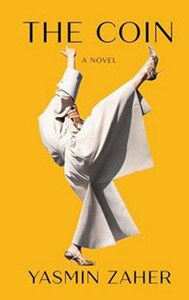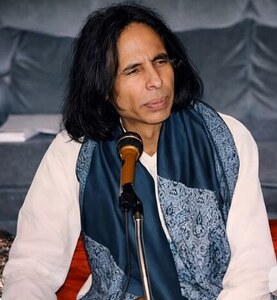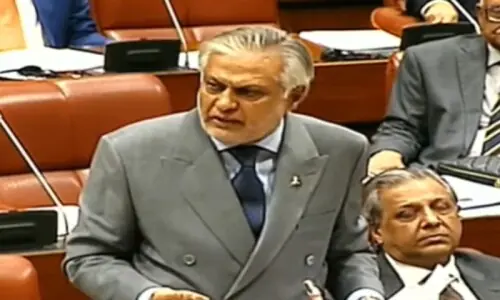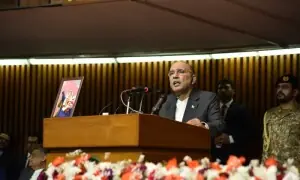
Have you ever looked at your bookshelf and noticed how many titles by women have made it there? Not many, I would presume. This does not reflect your reading tastes; it is simply a reminder of the fact that women’s writing is a small area in the ocean of literature.
Writing about women, translating women’s writing involves a measure of activism. My friend Daisy Rockwell told me she’s decided to translate only women’s writing for the next several years. A student in my class on women’s writing from India and Pakistan said she wanted to take classes taught only by women professors in her last year of college because she was shocked to realise she hadn’t taken a single class with a female professor in three years. That was not by design; it just happened that there are many more male professors.
In Urdu, women made their presence felt from the 1930s onwards, mostly in fiction as it provided a space for women’s experiences and perception of life as it was lived. It was also in sync with the reformist trend in literature. In Urdu poetry, the popular ghazal did not easily accommodate a gendered, feminine voice. In a ghazal about love, the poet — male or female — conventionally adopted a male voice and an ambiguous or transcendent beloved. However, this changed somewhat after 1947. Perhaps it had something to do with the assertion of identity in the new nation state of Pakistan. Kishwar Naheed and Fahmida Riaz were trailblazers. They were joined by Ada Jafri, Zehra Nigah, Azra Abbas and others. Feminism in Urdu came in waves. It was challenging for women to find a footing in the public, masculine domain of the mushaira.
Parveen Shakir followed the path cleared by her senior contemporaries and quickly found her voice with her first collection, Khushbu. Shakir imbued her ghazals (and nazms) with a distinctively feminine voice, consistently using the grammatical feminine gender and referencing womanly emotions, female attire and social constraints. In Khushbu, she envisaged the feminine not as a woman, but as a girl with all the innocence, playfulness and blooming sexuality of her gender. She was the flower whose fragrance — khushbu — was disseminated through her poems. As she matured emotionally and refined her poetic skill, she progressed to writing about marriage, motherhood, repression, disillusionment and fighting back.
Shakir published four volumes in her short life. Her collected works, titled Mah-i-Tamaam [Full Moon] gives us a comprehensive understanding of her poetic journey. Selected poems have been translated into English sporadically. A volume I can recall is Talking to Oneself, translated by Baidar Bakht and Leslie Lavigne. I’m reviewing here a curated presentation of Shakir’s work; Naima Rashid’s Defiance of the Rose is a refreshing, experimental approach to culling a selection. She wanted the poems in translation to mirror her own experience of discovering Shakir’s work, writing, “What if the poems were curated not in any linear dynamic, but placed instead as art works in an exhibition, playing off each other at different angles of contact, and building up a story which crystallised slowly, its episodes coming together strand by strand.”
Of the hundred poems, accompanied by the original Urdu and roman transliteration, ‘When the Wolves Come’ (‘Bhatt’) is a great opening choice; it is illustrative of Shakir’s evocative poetry and Rashid’s creative translation. Let me emphasise that the Urdu poem has a metrical rhythm unusual for a dark subject, but enhances it so much that we want to read it repeatedly:
“Moments before/ The wolves come/ A sharp stench/ Shoots through the woods./ Today, in my house too/ My sixth sense/ Has picked up/ A similar stench./ In this short time alone/ Three or four times already/ Every corner of the house/ With rose petals I have strewn./ These shields of roses/ Will they save me/ When the wolves come?”
Comparing the translation with the original, I noticed that Rashid adds a word or two, even a whole line — “When the wolves come?” — at the end. She elects to make this line the poem’s title. She interprets gulaab as rose petals. “Phir gulaab chhirrka hai,” is translated as “with rose petals I have strewn.” Indeed, ‘gulaab’ has come to mean the rose in Urdu, but in Persian it means rose water (gul + aab). In Urdu, gulaab chhirrakna probably implies sprinkling rose water, an age-old purifying ritual that could be a shield against the threat of evil.
The following line — “Yeh gulaab ki dhaalein” — is ambiguous. It could move us to think of roses more than rose-water because of the image of dhaal (shield). Roses or rose petals are strewn in welcome. Shakir’s allusion to roses as a protective shield is unique. It suggests countering stench with fragrance. Speaking of stench or bu, Shakir’s phrase “ek sansanati bu” is brilliantly translated by Rashid as sharp, shooting stench. Rashid’s interpretation adds another layer of powerful visual vibrancy of colour and movement.
Some poems Rashid translates have a version by another translator, such as ‘Steel Mills Ka Ek Khususi Mazdoor’ [A Singular Steel Mills’ Worker]. I compared Alamgir Hashmi’s translation with Rashid’s. In the first line, “kaala bhoot” is rendered as “black ghost” by Hashmi and “Phantom of soot in an ebony cloak” by Rashid. Certainly, Rashid’s expression is more poetic although neither ‘phantom’ nor ‘ghost’ are accurate renditions; the kaala bhoot here refers to an ugly visage. A person blackened with coal dust. The poem’s last line is “iss bhatti ka eendhan dar asl woh khud hai.” Hashmi’s translation is straightforward: “He is the fuel for this furnace.” Rashid again expands both line and meaning: “For his life is the engine/ that powers the beast.”
In her introduction, Rashid speaks of dismantling conventional frames of seeing and receiving. Presumably she is referring to her poetic translations. Her idea of bookending the translated poems to create a space of interaction between the reader and the poetry shows that she ordered the poems keeping in mind a trajectory of emotions. I like the idea of arrangement, a bouquet of poetry. I do wish she had not taken a free approach in translation. As a poet herself, she has plenty of creative space. Shakir’s lightness of touch is difficult to replicate, but Rashid comes close to capturing that light touch in several poems.
The columnist is associate professor in the Department of Middle Eastern and South Asian Languages and Cultures at the University of Virginia
Published in Dawn, Books & Authors, June 2nd, 2019































